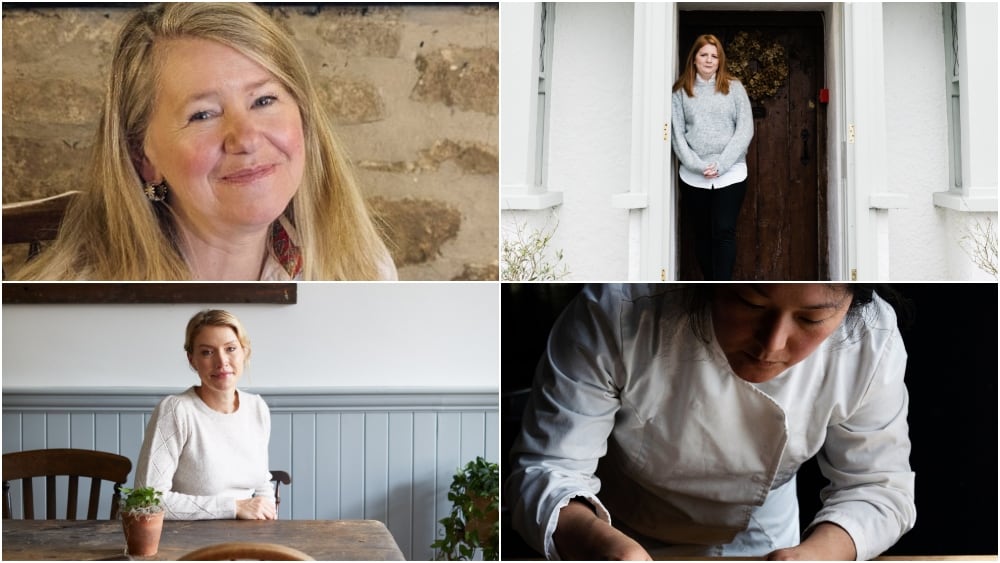Nina Matsunaga - owner and chef at the Black Bull in Sedbergh, Cumbria
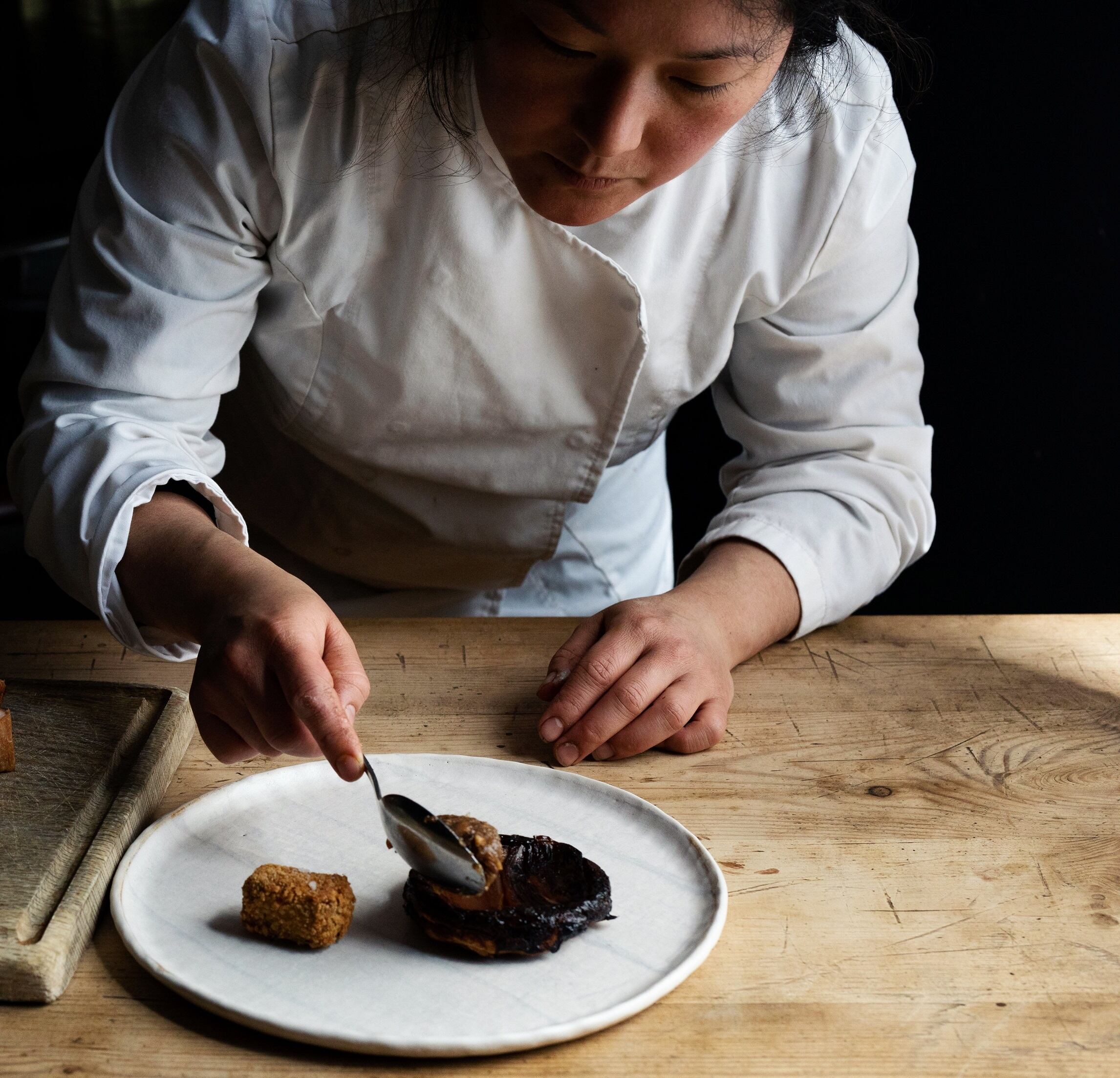
“It’s a difficult one this year because hospitality has had quite a few difficult years, putting it mildly. Since Covid, we have had a year where something wasn’t quite right, whether it’s wages or taxes or the cost-of-living crisis and so on.
“For women and for general hospitality, the main thing that needs focus may be staff retention especially for International Women’s Day.
“It would be nice to see more women retained within staffing. It’s important to be able to retain women even after maternity leave and if we can make women’s transitions back into hospitality more comfortable after childbirth, that will be a really positive thing for the sector.
“General staff retention is also really important, but it would be nice to see this especially from a female perspective. More awareness around sustainability is also really key.
“Less use of plastic is needed in the industry and more awareness of the ingredients chef’s use. The seasonality, the sustainability and the responsibility that we as chef’s hold is huge. Education from the ground up is also really vital.
“Food education is also key. It’s something that we all need. The rhetoric in kitchens need to change, but they’ve got much better.
“They are much more friendly, more welcoming environments. The working hours are also much better but it’s still an environment where there’s a lot of joking, a lot of noise, a lot of stress at times.
“College students need to be more well prepared for this as college may not be a true representation of the industry.
“It is a great industry to work in and it’s absolutely fantastic to develop skills of all sorts, it’s life skills because it’s cooking, it’s handling stress, it’s multitasking things. It’s also handy to have that skill, especially within kitchens.”
Lindsey Johns - co-owner of the Plough Inn, Wombleton, North Yorkshire
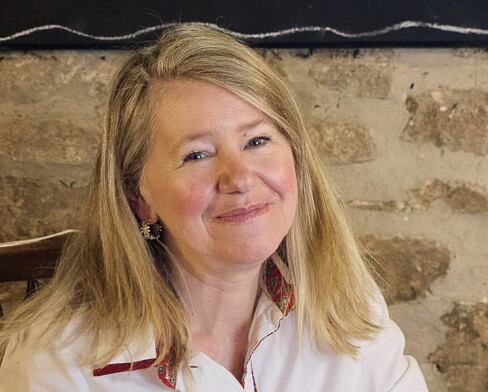
“There’s more and more of a presence now with female operators and employees and across the board, and awareness is important the female sector is out there and doing a really good job. We juggle a lot of things.
“As so do our male counterparts, granted. Women have always just been seen as a bit lower down in the rankings and now women have got a lot more support not only financially, but also with other women in the industry coming together, so we can all support each other.
“As we grow, we can pass on our experience and guidance, where we need too. It’s all about awareness for women in other sectors, but particularly for hospitality, it’s a fantastic career for anybody.
“Something that needs to be talked about is the pay structure for women in hospitality. This really should be increased quite a bit.
“We’re all well deserving of what we do and that is a main factor. We’ve all got the same kind of commitments to our lifestyles so why shouldn’t we be earning top money and being in top roles?
“We should be promoting abstract ideas and bringing them to the table as well and not be afraid to think out-of-the-box, which is something a lot of women do naturally.
“Hospitality used to be quite a male environment, running a bar or a pub or, any establishment with a licence was.
“But the hours have changed a lot and women are playing major parts in the hospitality sector now and that’s great.
“It’s also very important for us to give more to our schools and share our experiences in the industry with other countries as well.”
Nicola Tickle - co-owner of Heft Inn and restaurant, High Newton, Cumbria
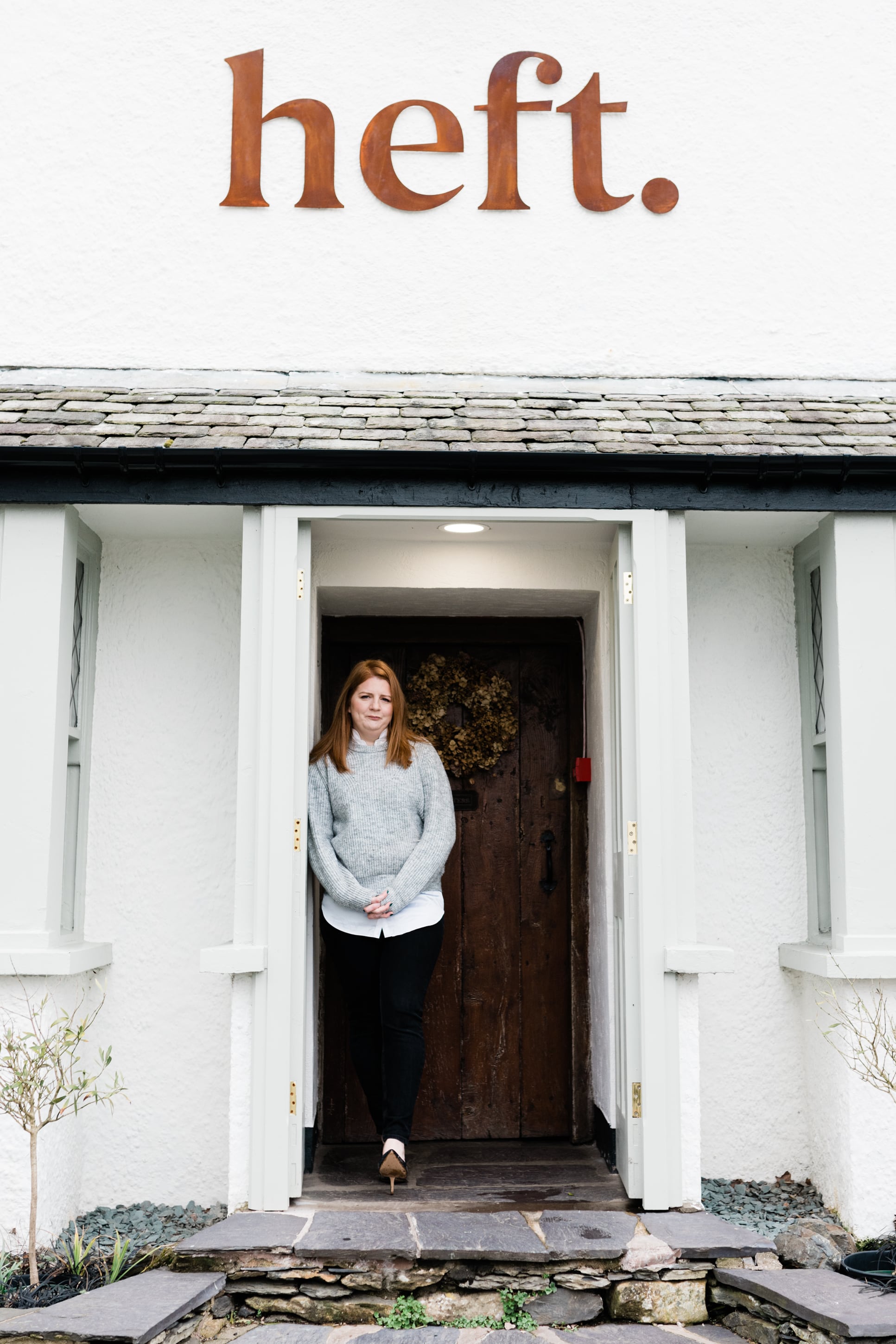
“Besides from the obvious I would like the hospitality industry to get a little bit easier for women this year. The time is now.
“There are issues that have been creeping very slowly towards being addressed and things are being implemented slowly.
“But something I would like to see more of as a whole, is that we all pull together and lower the expectations of what we’re hoping from staff in terms of how much they need to give. People can give a lot without needing to sacrifice their personal lives.
“Having more awareness around new mothers is also really important and what they may have to juggle between work. We personally are trying to increase our flexibility in our business approach and are trying to push that forward and attract people.
“Hospitality and other industries are missing a bit of trick with giving people, especially the women that need it, more of a work life balance.
“If this was implemented across the board, it would stabilise our industry with staffing levels.
“At Heft, we are looking to recruit people back into hospitality that may have previously left like mothers, and reattract previous employees, which is really important.
“Traditionally, hospitality has been quite a male dominant area so it’s also important to find a healthy mix of male and female workers in the industry. It seems to fall down to men retaining their full-time positions a lot.
“I personally don’t think you’ll find a better multitasker or harder worker than a mother. If we started hiring these women back after childbirth, we may then start to see more women winning awards or having shots at higher positions within the industry.
“People need to be more lenient around welcoming women back that have just had children and there also generally needs to be more of a belief that women can and will achieve just as much as men when they come back after maternity leave. I think that’s the main point.
“I believe everybody will say these things, a lot of people will talk, but maybe nobody will fully commit to these ideals fully, or as a whole.
“That’s probably because there are not enough women saying, you know what… we’re right. We’re not all brain dead... making space is important.
“As a female director, I should be sticking up for our cause and then if we all start to do so, hopefully something will change. Now’s the time to go, ‘right, enough, we can do this’.”
Florence Pearce - co-owner of the Tollemache Arms, Harrington, Northamptonshire
“Being a woman at the helm of a hospitality team has its unique challenges, but it’s also incredibly rewarding. We often find ourselves breaking the glass ceiling while balancing trays of drinks (I like to think of it as multi-tasking at its finest).
“There’s a camaraderie among women in leadership that is truly inspiring. We share stories, strategies, and the occasional eye-roll over the same old stereotypes. Together, we’re reshaping the narrative and proving that leadership, is a blend of various ingredients—experience, empathy, and a splash of humour.
“Looking forward, I hope to see more women stepping into leadership roles across the industry. We need more diverse voices at the table. It’s time to elevate our game and create a hospitality landscape that embraces inclusivity and innovation.
“In 2025 and beyond, I want to see the industry focus on sustainability and mental health - because nothing says ‘relaxation’ like knowing your business is saving the planet and your staff isn’t on the verge of a nervous breakdown.
“Let’s prioritise wellness in both our guests and our teams; after all, happy team members creates happy guests. And who wouldn’t want to be served by someone who’s not just surviving on coffee and adrenaline?”
Maria Hunter - owner and director of the Pig’s Head in Clapham, south-west London
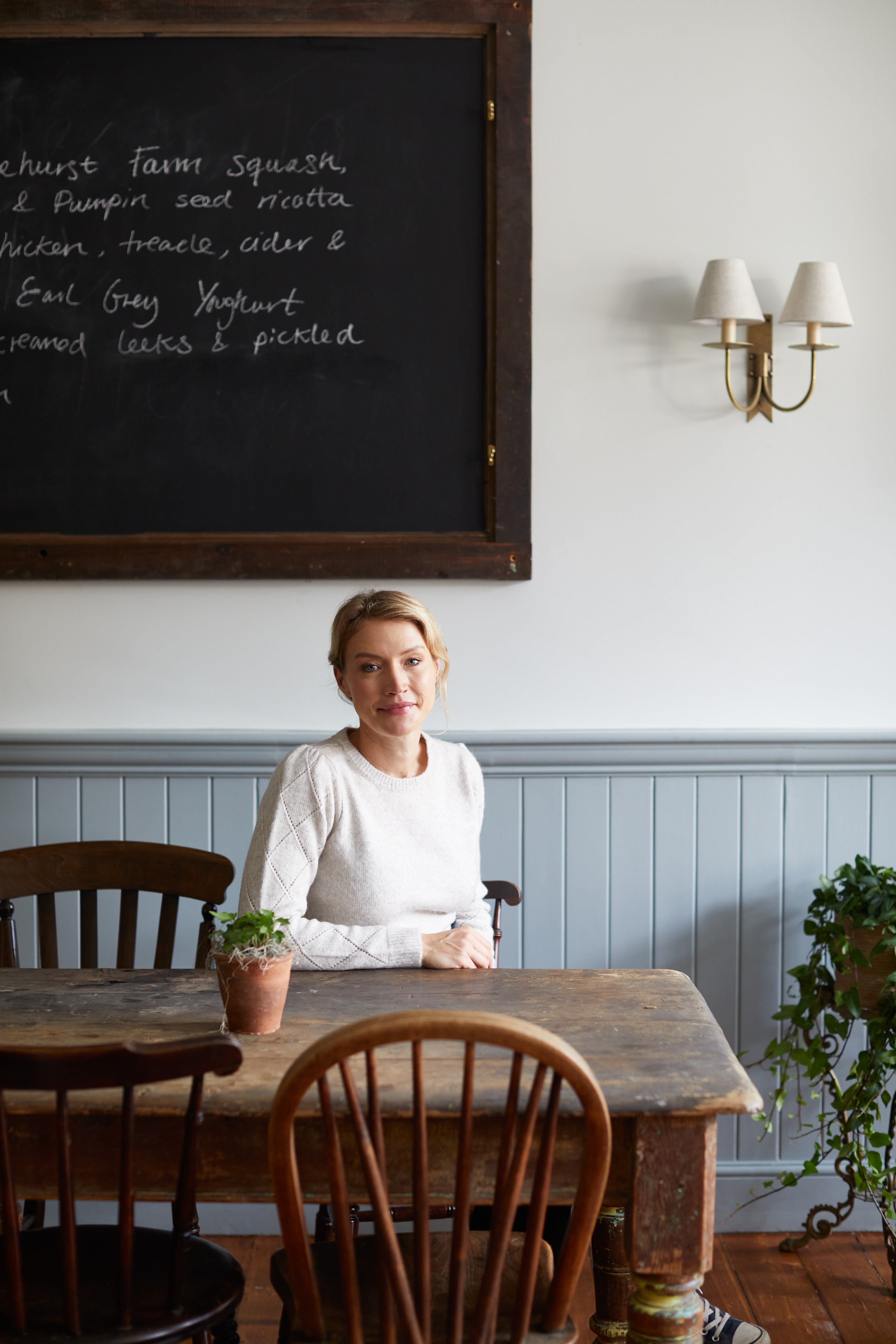
“Thankfully we already have many incredible women in the hospitality industry, but I do hope to see greater opportunities for women in senior leadership roles within the sector.
“Ultimately, the future of hospitality should focus on creating spaces that are both environmentally responsible and inclusive, where every guest feels welcome and where businesses are valued for their positive impact on the local community and the planet.
“Looking ahead to 2025 and beyond, I hope to see a growing commitment across the hospitality industry to not only reduce environmental impact but to elevate social responsibility as well.
“The industry is well-placed to lead by example in adopting practices that prioritise sustainability in every aspect—from sourcing food and drinks locally, to reducing waste, and by investing in fair and ethical labour practices.
“At the Pig’s Head, we source whole native-breed animals from regenerative farms and butcher on-site, ensuring a true farm-to-fork ethos. By crafting daily menus based on surplus ingredients, we minimize food waste and transform potential waste into menu items we can sell.
“Our partnership with Carbon Friendly Dining and Gift Trees allows guests to offset their meal’s carbon footprint through a voluntary donation, by planting a fruit tree that sequesters carbon over its lifespan.
“I hope to see more establishments adopting such initiatives, empowering consumers to make environmentally conscious choices.
“As more establishments take steps toward this, I believe we will witness a significant cultural shift, where sustainability is not just a trend but a core value that defines how we operate.”


